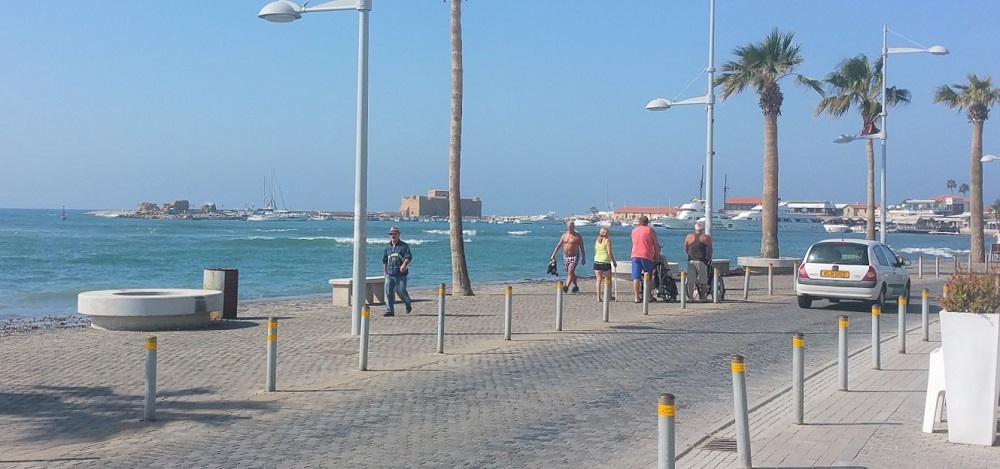February weather is the most unpredictable weather in Cyprus. The average daytime temperature is 20 °C. Some days will be unexpectedly warm and sunny while other will be very rainy.

1. Average weather in February
- Generally: Both sunny and cloudy/rainy days. 50/50
- Day temperature: 10-23 °C
- Night temperature: 0-13 °C
- Sun: 14-16 sunny days.
- Rain: 8-9 rainy days. Rains for a few hours.
- Clouds: 7-8 cloudy days.
- Swimming: Water temperature 16-18 °C
- Sunset: The sun sets at 17:00

2. Cyprus temperature in February
In February the weather in Cyprus is mild winter with many sunny days and average daytime temperature or 17 °C.

In February is great for exploring the countryside, the traditional villages of Cyprus and Cypriot cousin.
At the coasts of Cyprus the temperature is 15-20 C during day time while at the mountains it droops to 0-10 with some snow.During the day the temperature is 25-35 °C and it drops to 15-25 at night. The chance of rain is less that 5%. The sun sets at 18:30. The weather at Troodos mountains is a bit colder with temperatures of 15-25 °C and 5-6 rainy days in February.
3. What clothes to wear in February
You will mostly use your summer clothes. At day time you will probably wear shorts, t-shirt, swimming suit etc. You should also have a sweater and a pair of pants for the night or in case the weather turns a bit cooler than normal. Below are a few photos I have taken during January so that you can get a better idea of the weather and what most people wear.


4. Going to the beach in February
The sea water temperature depends on your destination. In the south coasts of Limassol, Larnaca and Ayia Napa the waters are shallower and warmer with temperatures of 24-26 °C in February. The west cost of Paphos and northern coasts of Latchi have colder waters with temperatures of 22-24 °C in February.

5. Things to do in February
Summer activities on the beach are also good in February. Sun is still hot and water is warm so you can keep sunbathing and swimming. Water parks will not close till February. It is better to plan your excursions around the island for early morning or late afternoon to avoid the sun at its peak. Wine Festival that has started in the end of August continues in September so do not miss the chance to spend great time outdoor trying different local wines and traditional Cypriot food and watching dance and theater performances.
Please feel fee to share whatever you find interesting. For any questions please write us using our Google+ page.
Choose you city of interest: Paphos, Limassol, Nicosia, Larnaca, Ayia Napa
tation averages monthly to around 73mm (about 3 inches). Throughout January you can expect to see a lot of rain and drizzle for an average of 8 days in the month. The temperate drops at Night to about 7°C 45°F and has a high daytime reading of about 17°C 63°F (All are averages as the temperature varies between Nicosia and Limassol for example at about 2°C-3°C - Nicosia having the lowest reading being in the center of Cyprus, whereas the coastal towns enjoy a rather mildest climate). On the mountains temperatures often drops to as low as 0°C or even lower. Hail and snow in the plains are very rare but in the unlikely event of snow, it melts quickly before it even touching the earth. Frosts during the winter are frequent in the inland and coastal areas.
The water temperature again depends on the area (east vs west) but usually averages at about 17°C 63°F. Air Humidity is at 70% with up to 11 rainy days within the month.
The hours of continuous sunshine are around 6 per day and the approximate time of sunset is17:14. Going into January, the length of the day is steadily increasing. The shortest day of January is the first day of the month with 9:40 hours of sunlight; the longest day is January 31 with 10:18 hours of sunlight.
If you happen to visit Cyprus in February you can explore the villages of Skarinou ....
